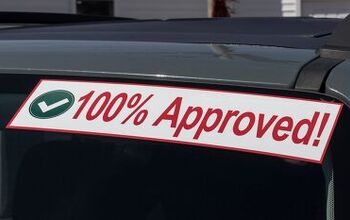Credit Ratings Agency Warns of Tolling Troubles
Toll roads at one point appeared to be unstoppable. Steady growth in traffic yielded rapidly rising profits, especially for pioneers in the field such as Australia’s Macquarie Bank where executives became so rich from deals that included the leasing of US roads that it was dubbed the “millionaires’ factory.” That all changed when the recession took hold and motorists scaled back on the mileage driven each year. Losses began to mount, and as a report released last week by Fitch Ratings argues, the dynamics for tolling may not improve in the near future.
“Fitch tracks data on toll roads, bridges, and tunnels across its ratings portfolio,” Fitch analysts wrote in the report, Downshifting: US Transportation Reacts as GDP Growth Flattens. “Traffic declined year over year as much as 10 percent during the Great Recession. Sustained positive growth in traffic commenced in February 2010. The most recent Fitch data indicates that growth in traffic volumes began slowly declining on tolled facilities, heading to zero growth in second-quarter 2011.”
The US Bureau of Transportation Statistics reported a similar decline in commercial transportation services for both goods and passengers. Despite some recovery, the index remains below pre-recession levels. These transportation statistics mirror figures for consumer spending which began recovering early last year only to falter this March. Growth in consumer spending for the second quarter of 2011 was under 0.1 percent.
The credit ratings agency argues activity in the economy at large and the in the transportation sector are directly linked. When someone gets a job, he generally gets in his car to drive to work. When stores sell goods, the supplies, raw materials and final product are usually transported by truck. When unemployment is high and sales are low, such transportation activity drops.
“Higher oil and other commodity prices account for some of the change in consumer spending,” the analysts explained. “Unlike past downturns, these prices are increasingly influenced by external factors as well as US demand. Consumers are reacting to increased prices and a weak labor market with belt tightening.”
Fitch will not downgrade any existing credit ratings for toll roads because these operations have a monopoly position that enables them to recover from downturns by hiking tolls that many motorists have no choice but to pay.
“Tolled facilities have experienced low and even negative traffic growth since 2007,” the analysts stated. “Revenues have grown at a much higher rate as facility operators reacted to the downturn by raising rates to preserve financial and operational flexibility.”
The ratings agency warned that sustained periods of low economic growth imperils the financing of deals built with healthier traffic and economic forecasts in mind.
“Most public infrastructure facilities should be able to weather little to no growth scenarios over the next three to five years,” Fitch wrote. “However, there are a number of issuers whose escalating debt profiles could pose a problem in the medium term. Newer toll facilities generally have such debt service profiles… Stand-alone, concession-based facilities, originally financed in 2006 – 2008 when expectations for future economic growth were very high, will be more vulnerable.”
[Courtesy: Thenewspaper.com]
More by The Newspaper
Latest Car Reviews
Read moreLatest Product Reviews
Read moreRecent Comments
- Kwik_Shift_Pro4X '19 Nissan Frontier @78000 miles has been oil changes ( eng/ diffs/ tranny/ transfer). Still on original brakes and second set of tires.
- ChristianWimmer I have a 2018 Mercedes A250 with almost 80,000 km on the clock and a vintage ‘89 Mercedes 500SL R129 with almost 300,000 km.The A250 has had zero issues but the yearly servicing costs are typically expensive from this brand - as expected. Basic yearly service costs around 400 Euros whereas a more comprehensive servicing with new brake pads, spark plugs plus TÜV etc. is in the 1000+ Euro region.The 500SL servicing costs were expensive when it was serviced at a Benz dealer, but they won’t touch this classic anymore. I have it serviced by a mechanic from another Benz dealership who also owns an R129 300SL-24 and he’ll do basic maintenance on it for a mere 150 Euros. I only drive the 500SL about 2000 km a year so running costs are low although the fuel costs are insane here. The 500SL has had two previous owners with full service history. It’s been a reliable car according to the records. The roof folding mechanism needs so adjusting and oiling from time to time but that’s normal.
- Theflyersfan I wonder how many people recalled these after watching EuroCrash. There's someone one street over that has a similar yellow one of these, and you can tell he loves that car. It was just a tough sell - too expensive, way too heavy, zero passenger space, limited cargo bed, but for a chunk of the population, looked awesome. This was always meant to be a one and done car. Hopefully some are still running 20 years from now so we have a "remember when?" moment with them.
- Lorenzo A friend bought one of these new. Six months later he traded it in for a Chrysler PT Cruiser. He already had a 1998 Corvette, so I thought he just wanted more passenger space. It turned out someone broke into the SSR and stole $1500 of tools, without even breaking the lock. He figured nobody breaks into a PT Cruiser, but he had a custom trunk lock installed.
- Jeff Not bad just oil changes and tire rotations. Most of the recalls on my Maverick have been fixed with programming. Did have to buy 1 new tire for my Maverick got a nail in the sidewall.


































Comments
Join the conversation
Maybe our stupid Ohio guv won't be able to lease the turnpike after all. (It's dumb anyway) John
I first read the title of this article as "Trolling troubles". Which makes sense, doesn't it? Trolls are famously known to collect tolls for roads/bridges.